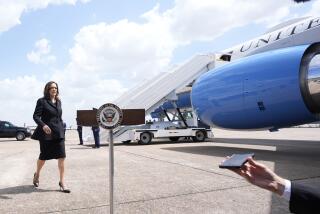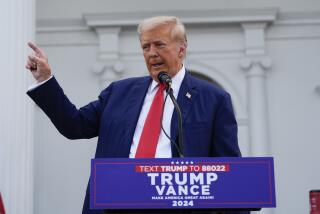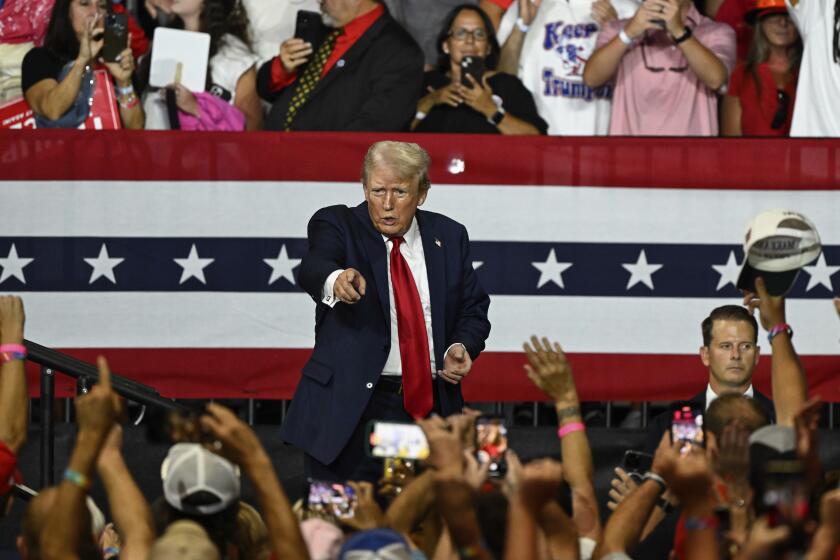The race might come down to issues -- or not
There’s a reason Democrats are confident they’ll win the White House this fall: On the issues that rank highest, Americans seem to agree with their candidates.
There’s also a reason Republicans think their party will prevail: In several recent presidential elections, issues took a back seat to personality.
Voters want government to do more to fix the economy. They also want U.S. troops out of Iraq. The presumptive Republican nominee, Sen. John McCain, sides with a distinct minority on both counts.
But on less tangible questions of leadership, strength and trustworthiness, polls show McCain beating Sens. Hillary Rodham Clinton and Barack Obama, the Democratic candidates.
Obama and Clinton are increasingly attacking one another on a personal level, which could boost McCain’s advantage.
A recent Gallup survey suggested that Obama, in a general election, would be most vulnerable on experience; Clinton, on trustworthiness; and McCain, on Iraq and other issues.
What the survey did not predict -- what analysts say no data can at this point in the campaign -- is whether voters will care more about policy or personality.
Picking a president is a complex calculation. Each election, and its backdrop, changes the formula.
In presidential politics, “issues tend to be situational,” said Bruce Buchanan, a government professor at the University of Texas who studies the presidency.
“When there’s a crisis, issues are dominant.”
Sometimes the crises are economic, such as a recession in 1992 and stagflation in 1980, when Ronald Reagan rode the slogan “Are you better off today than you were four years ago?” to a rout of President Carter.
In 2004, analysts attributed President Bush’s reelection to a mix of voters’ concerns over terrorism and their perception that Bush was more trustworthy than Sen. John F. Kerry.
Signs point to another economic crisis this fall.
Last month, unemployment rose and the economy lost 80,000 jobs, the Labor Department reported. Home prices are falling, consumer credit is tightening and foreclosures are up.
Gallup reported at the end of March that 3 out of 5 Americans worried “a great deal” about the economy, and that a majority called economic issues the most important problem facing the country.
Recent polls show voters favor Democrats to steer the economy. A recent CBS News/New York Times poll showed Clinton and Obama each leading McCain by 8 percentage points on the question of whom voters trusted to make good economic decisions.
The poll also showed that about 2 out of 3 voters said America should have stayed out of Iraq, and a similar number said the war’s price tag had hurt the domestic economy.
Based on those numbers, “The Democrats should be way ahead” in general election matchups, said Andrew Kohut, president of the Pew Research Center.
But many polls show Clinton and Obama tied with McCain or barely ahead, which suggests voters are weighing other factors.
A USA Today/Gallup poll last month hints at some of them. McCain led the Democrats on questions of who would be “honest and trustworthy” and a “strong and decisive leader.”
The split opinions “suggest on the surface that in the campaign in the fall, the Republicans might try to pick on the personality issues of the Democrats,” said Frank Newport, editor in chief of the Gallup Poll, “and the Democrats, if they’re following the data, might try to go after the policy issues of McCain.”
More to Read
Get the L.A. Times Politics newsletter
Deeply reported insights into legislation, politics and policy from Sacramento, Washington and beyond. In your inbox three times per week.
You may occasionally receive promotional content from the Los Angeles Times.







